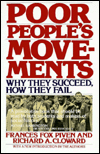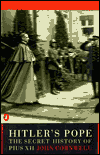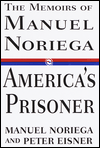
Click above, for articles in this issue.
POLITICAL SCIENCE

Poor People's
Movements,
why they succeed,
how they fail
ISBN: 0-394-72697-9
Have the poor fared best by participating in conventional electoral politics or by engaging in mass defiance and disruption ? Frances Fox-Piven and Richard Cloward examine four protest movements of lower-class groups in 20th century America;
1. The mobilization of the
unemployed during the great depression that gave rise to the Workers' Alliance
of America;
2. The industrial strikes that
resulted in the formation of the CIO;
3. The Southern Civil Rights
Movement;
4. The movement of welfare
recipients led by the National Welfare Rights Organization.
"The Workers Alliance of America had lofty aspirations. Until 1937 its constitution called for the 'abolition of the profit system,' although its language became more moderate as its commitment to the New Deal became more ardent. Its legislative proposals included, among other things, all inclusive unemployment insurance to be paid for by individual and corporate income taxes, and to be administered by workers and farmers." (p. 90, on the Unemployed Workers' Movement)
"The circumstances which led to the uprisings of industrial workers, and gave them force, were rooted in the economic and social dislocations of the depression. Catastrophic unemployment and the sharp decline of wages made workers restive in the first place; the early moves by political elites to deal with the economic catastrophe, and with the electoral instability bred by catastrophe, only legitimized worker discontents, helping to escalate an industrial war." (p.172, on the Industrial Workers' Movement)
"When people are finally roused to
protest against great odds, they take the only options available to
them within the limits imposed by their social circumstances... Protest
wells up in response to momentous changes in the institutional order. It
is not created by organizers and leaders. Once protest erupts, the
specific forms it takes are largely determined by features of social structure.
Organizers and leaders who contrive strategies that ignore the social location
of the people they seek to mobilize can only fail... protest movements are
shaped by institutional conditions, and not by the purposive efforts of leaders
and organizers. The limitations are large and unyielding. Yet within
the boundaries created by these limitations, some latitude for purposive effort
remains. Organizers and leaders choose to do one thing, or they choose to
do another, and what they choose to do affects to some degree the course of the
protest movement." (p.
36-7, Introduction)
***
HISTORY

Hitler's
Pope,
The Secret History
of Pius XII
ISBN: 0-14-029627-1
John Cornwell a journalist and avid researcher into Vatican affairs spent several years researching what would turn into this book. Initially he sought to vanquish the rumors which for years had tied, what many Italians still refer to as l'ultimo papa, the last Pope, to the Nazi's. As Cornwell dug, instead of vanquishing the rumors--he instead found strong evidence supporting them.
The book is rich in detail regarding Eugenio Pacelli's, Pope Pius XII's, ascendancy. The richness of detail also encompasses the history of the period, of the early 20th century, leading us from the turn of the century to the Pope's zenith in 1950.
In 1933 Pope Pius XI joined with the Nazis in signing the Reich Concordat, an agreement which "...marked the formal beginning of German Catholicism's acceptance of its obligations under the terms of the treaty which imposed a moral duty on Catholics to obey the Nazi rulers. Thus Catholic critics fell silent... Who could now doubt that the Nazi regime had the blessing of the Holy See ?" (p. 160)
Pius XI would later also embrace the developing fascism in Spain, openly denouncing the Republicans and prasing Franco. Over a period of years as fascism developed in Spain, Germany and in Italy, the Pope was steadfast in his support of fascism. He failed to denounce invasions and aggression by the forces of fascism that resulted in atrocities. It was in this milieu that Pope Pius XII, emerges.
Hitler's Pope takes a long, deep look at Pacelli's role in the rise of Hitler in Germany and the negotiations the ambitious cardinal undertook with the Nazis to ensure the survival of the German Catholic Church. In return for a guarantee of the Church's survival, Pius XII played a crucial role in Hitler's success by removing the influential German Catholics from the public debate. This, author John Cornwell argues, was a critical step in bringing Hitler to power. In Cornwell's words: "No other non-German did more to contribute to Hitler's rise to power."
Cornwell realized that the materials he had gathered on Eugenio Pacelli's life did not exonerate the pope of the charge of indifference, but implicated him in a much more damning charge of collusion. Cornwell discovered that Pacelli was a career anti-Semite, documented as far back as 1919, and gives greater detail than ever before of the pope's complete refusal to help the Jews of Rome as they were rounded up just outside the Vatican's walls to be taken for mass extermination.
***
BIOGRAPHY

The Memoirs of
Manuel Noriega,
America's
Prisoner
ISBN: 0-679-43227-2
American public opinion has a notoriously short attention span, so the saying goes in political circles, and in fact public memory regarding Manuel Antonio Noriega, has been fleeting. He was for many years an ally of U.S. interests in the country of Panama, rose to become General and then President of that country, later to be described as a thug, and drug trafficker--as dictator, or as Colin Powell described him, "evil."
The Memoirs of Manuel Noriega, were
written as the former General languished in a federal prison just 12 miles south
of Miami, written with the assistance of an American journalist Peter Eisner of
Newsday. The book warrants attention, perhaps now more so than when it hit
the bookstores in 1997. Why ? What the book traces for us is a 'modus
operandi' by Neoconservatives tied to CIA, the Pentagon, of creating conditions
for facilitating outcomes advantageous to U.S. foreign policy. Outcomes
that use harsh measures, and harsh people--dictators, assassins, hardly
ever representative of democratic and humanitarian principles--to accomplish
pre-conceived ends. First, demonize, use methods of propaganda and
lies, then unleash a barrage of violent action and subdue the target of
aggression. We see it here in Noriega's case, later in Iraq in the case of
Saddam Hussein, and the lesson gained is the 'modus operandi' of those at the
helm of power in the United States of America. What is interesting to note is
that many of the people that today are at the helm of American
political power, were at work behind the scenes during the Reagan era, and
subsequent George H. W. Bush administration.
Noriega flatly denies the charges, which were levied against him; dictator, drug trafficker, or as thug, and Eisner during his investigation uncovers a plot hashed by the Justice and State Departments to frame Manuel Noriega. Eisner contacts the witnesses at Noriega's trial, who recant their testimony, and provide the reasons for their testimony as a result of 'deals that they could not refuse.'
"Rarely has a figure in this century been so universally vilified as Manuel Antonio Noriega. By 1993 when I was asked by Random House to interview Noriega--the deposed General and former leader of Panama... his infamy had become a matter of history. It had been four years since the United States had invaded his country, killed untold hundreds of Panamanians and brought him back to the United States in chains to face drug charges... In post-cold war America, Noriega was perhaps the first figure to be thus endowed with the inhuman qualities he is remembered for--pure 'evil'... 'a crazed dictator' in the words of Washington policy makers; 'just another crooked cop,' in the words of the U.S. prosecutors who later were found to have negotiated a deal with the Cali cocaine cartel to obtain witnesses to testify against him...
...Neither international human rights organizations nor the U.S. State Department could identify more than a scattered handful of politically related deaths in Panama in twenty years of military rule, nor did they cite huge numbers of political prisoners, massive exiles avoiding persecution or any of the other conditions of an extreme police state." (p. xiii-xv, Introduction )
Noriega's rule was in truth rather
benign, compared to others whom the United States has supported--the likes of
Pinochet, Somoza, even assassins like Roberto D'Aubuisson. George H. W.
Bush pushed for Noriega's capture replete with a vicious military invasion in
December 1989. Mexican Catholic Bishop Mendez Arce said of it:
"The United States approved the unjust invasion and the consequent
destruction, mistreatment and massacre of the Panamanian people. For us it
seems to be serious proof that systemic lies are capable of corrupting the
American people. What a detestable and shameful panorama it is to see that
a government that considers itself to be a champion of democracy and justice can
ignore international order and assume the roles of police, judge, jury, and
executioner for everyone else."
Why read Noriega's Memoirs ? Perhaps for no other reason than to get a glimpse of comparison into the propaganda Bush machine that builds a mantra of 'evil' around those it seeks to destroy. A shroud that it carefully builds for the benefit of public opinion, before venturing into its wars of aggression--be it in Panama, Iraq or in geopolitical 'hotspots' to come. This is how the Neocon-Bush machine destroys its 'enemies.'
What does Noriega say then, was the
rationale for U.S. aggression ?
"I said no too many times, I refused to allow them to use Panama as a base [on behalf of the Contras]... The closing of the Panama School of the Americas [the U.S. Army School of Assassins] in 1982 was mandated as one of the first tangible changes under the Torrijos-Carter treaties of 1977-78. The United States was well aware of the provision, but the Reagan administration just couldn't swallow it. As determined and proud as we were to follow through with Torrijo's legacy, the United States didn't want any of this to happen. They wanted an extension or a renegotiation for the installation, saying that with their growing war preparations in Central America, they still needed it. But the School of the Americas was an embarrassment to us. We didn't want a training ground for death squads and repressive right-wing militaries on our soil." (p.114)
Are these the words of an evil
dictator, a thug ? Meanwhile the School of the Americas is currently based in
Georgia, has changed names but continues to operate, training foreign armies as
well as our own, in the 'fine' techniques of torture, death, and
assassination.
Wherein lies the evil ?
***
Posted April 03,
2005
URL: www.thecitizenfsr.org SM 2000-2011
You are here: HOME page-OLDER ISSUES-APRIL 2005-Recommended Reading
Previous : In Retrospect Next : Words of Inspiration